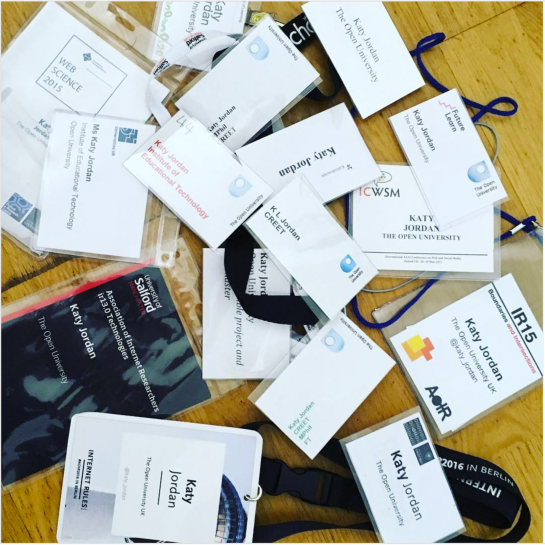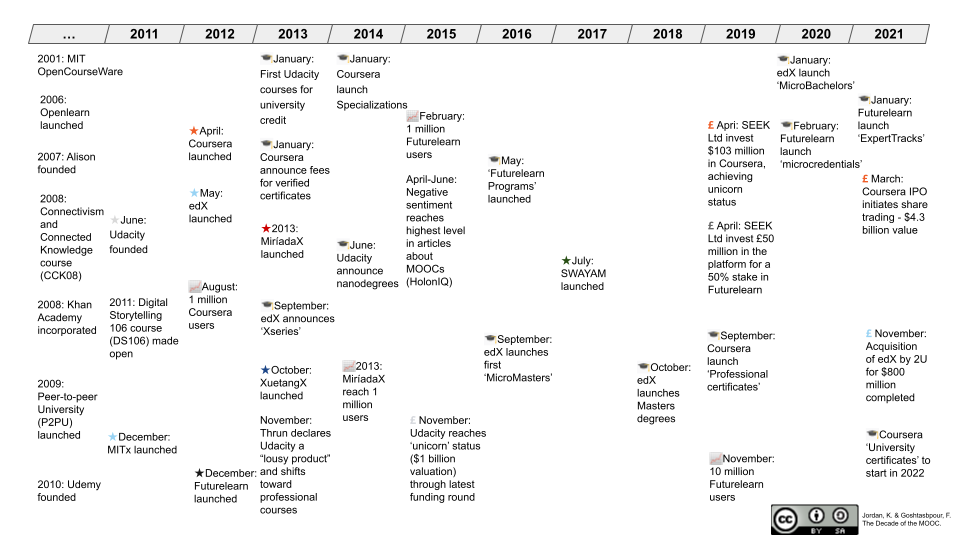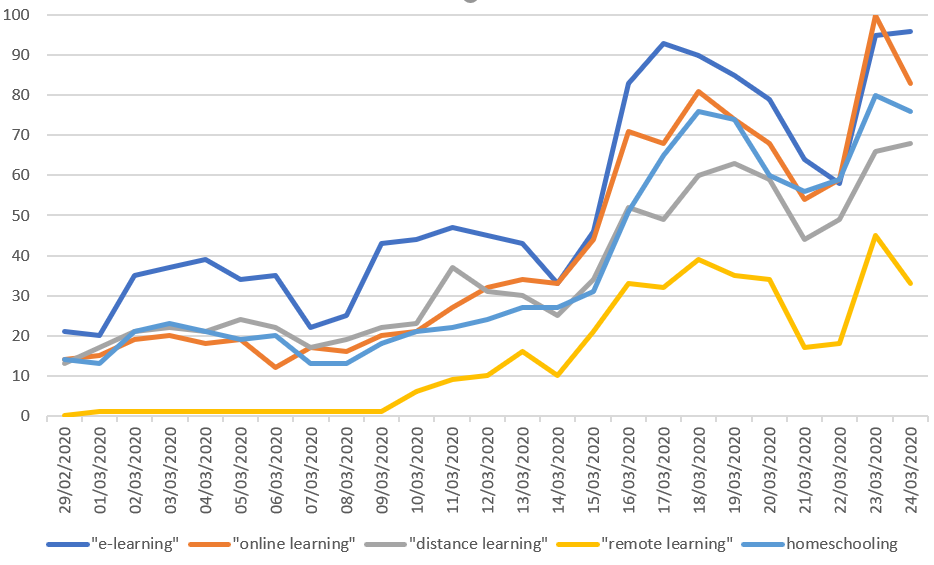There have been various announcements recently that conferences scheduled to take place in the coming months will be moving online. Some are now offering free participation, or at least substantially reduced fees, so I am planning to try to make up for not being able to travel by attending as many things as I can. This post is a round-up of all the things that are on my list; I will update it if there are any further announcements (note that BERA and SRHE have been cancelled). Hope this is useful for you too, and do let me know if you have any suggestions!

CALRG
The 41st annual Computers & Learning Research Group confernce at the OU will take place online, 15th-17th June. Free to register, here: https://www.eventbrite.co.uk/e/computers-learning-research-group-calrg-41st-annual-conference-tickets-107697052784
EDEN
The EDEN conference is scheduled to take place from 21st to 24th June. Fee is 150 Euros, for non-members; some concessions are available: https://www.eden-online.org/2020_timisoara/
Web Science Conference
Scheduled for 6th to 10th July, this will now take place online. This is a very interesting inter-disciplinary conference, which usually includes some sessions related to Education (I haven’t checked, but the programme is available on the website now). Fee is £50: https://websci20.webscience.org/
Social Media and Society
One day event in July (22nd). Free of charge to attend, no need to register, streaming information on the day: https://socialmediaandsociety.org/
Learning @ Scale
12th – 14th August, online. No information on the website at the moment about fees (I’ve wanted to go to this conference for years and not been able to afford it, hoping this is my chance!): https://learningatscale.acm.org/las2020/
ALT-C
The Association for Learning Technology’s annual conference usually takes place in September, but has been replaced with an online ‘summer summit’ this year (26th & 27th August). Fees are £99 for non-members, £49 for members: https://www.alt.ac.uk/civicrm/event/info?reset=1&id=519
EC-TEL
This conference had been scheduled for 14th to 18th September, and will now be held online. Early bird (until 14th August) non-member rate is 150 Euros – some concessions available. http://www.ec-tel.eu/index.php?id=957
Association of Internet Researchers
The AoIR conference will now be online and held over a two week period in October. The website states that the online events will only be open to members of the society, who must hold membership by 1st August – this is very cheap though (and even cheaper for students): https://aoir.org/aoir2020update/
CSCW (Computer Supported Co-operative Work)
This is another one which I’ve not been to but have always thought would be very interesting. It’s going to be held online from 17th to 21st October. There will be a fee – as yet not specificied, but will be substantially reduced: https://cscw.acm.org/2020/
OE Global
16th to 20th November: https://www.oeglobal.org/2020/05/06/open-education-global-2020-conference-is-transitioning-to-a-virtual-format/
ASCILITE
Will be held online, 30th November to 1st December. Note that the Call for Papers hasn’t opened yet so there is still the opportunity to participate as a presenter (deadline 6th July): https://mailchi.mp/855fb12c0dca/special-announcement-the-ascilite-conference
Past conferences
Networked Learning Conference
Took place 18th to 20th May. Not sure if the recordings will be made available yet – here’s the link to the conference website, for reference: https://www.networkedlearning.aau.dk/nlc2020/





